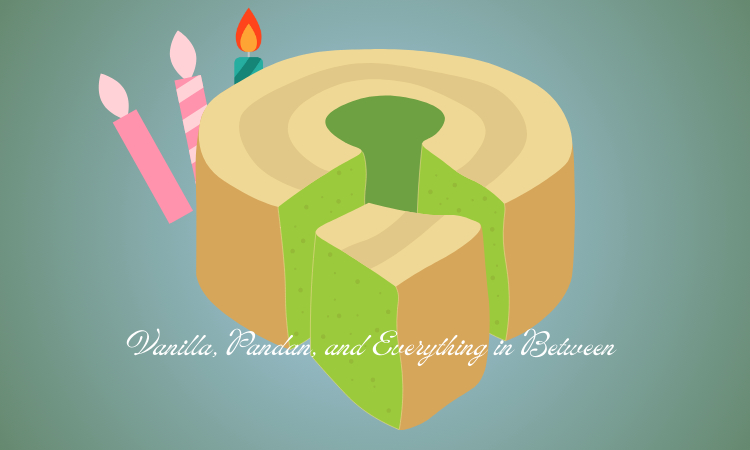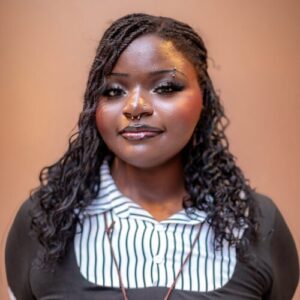A Foreshadowed Understanding

This piece appears courtesy of GWN’s 25th anniversary anthology On The Art of The Craft: A Guide to Collaborative Storytelling (Harper One).
People often struggle with their genders growing up. Most grow out—or, rather—into their pre-established identities. I didn’t.
I could never seem to break the formula. What was it about me that confused people? Was it something in my eyes? My voice? My arms? I’m five-foot-three—it couldn’t be my height. For a while, I had long hair, too. So what was going on? Why couldn’t people understand that I was trying so hard, wishing so incessantly that they see I was a girl?
My mirror didn’t seem to agree with me either. Boy, it told me. Boy in a dress. This didn’t make sense to me… so it had to be wrong. Everyone else must have felt this way, too, right? At any rate, until I was fifteen, I was determined to pride myself in my “womanhood”, take on this label and do with it what I could. But at the same time…
“Is that your older brother?” people would ask my younger sibling, every time I was within his friends’ line of vision. And I would shrink inside myself with embarrassment because I knew if I just looked at my reflection, I would see that these little kids were not unreasonable.
“Are you a boy or a girl?” asked a toddler I was babysitting, with a glimmer of innocent curiosity in her eyes. At that point, as a fourteen-year-old, I didn’t know how to answer her question. All I said was, “Some people…” and then trailed off, much to the child’s disappointment. Then as I watched her bottom lip start to tremble the way kids’ mouths often do, I felt a spark of hatred burst faintly inside myself, because I couldn’t be the role model I knew this little girl wanted.
“Why do you dress like a boy?”
It’s more comfortable.
“Why did you cut your hair?”
It’s easier.
“Why don’t you like it when people call you pretty?”
It’s weird.
“Sorry, excuse me, sir.”
Oh, no, I’m… never mind.
Every time Easter rolled around, I had to step into a dress my mother had so kindly picked out for me. Don’t get me wrong—I was grateful. However, I felt like the outfit, though not necessarily tight, was strangling me—the wind was too breezy between my legs, the neckline felt too low, the flattering sandals were scratchy on my feet. I wanted to throw a blanket over myself and hide in the dark forever, but I was forced to go to church anyway, where people would eye me with confusion… Why, why, why? What was it about me that made people hesitate before they spoke? And why did I feel the exact same way?
My mother scolded me for my eventual hatred of my sex, the implicit misogyny in such a notion… That wasn’t really what I was getting at, though. I didn’t hate women. I hated myself.
By my sophomore year, I had learned a little about the nuances of gender through the Internet, and saw an opportunity, a spot for myself. I decided that my pronouns would be they/them. At once, the burden of femininity was lifted off my shoulders, and I felt that I could breathe deeply for the first time in my life. Even so, I cried as I watched it go. There was nothing wrong with being a woman… but there was something wrong with me being a woman. That was for sure. Unfortunately, this non-binary euphoria didn’t last long, either. Once I had stepped into the wild, I could feel that there was a stronger truth awaiting me, something right, but certainly more extreme.
Now, as is often the case with situations like these, I feel like the world has reversed. Even though I’ve fully socially transitioned into the more comfortable mold of boy, all I get is “She, she, she.” The universe is unfair, but what can you do? I know the feeling of walking into a bathroom—either one—and getting stares of both puzzlement and even hostility. I know that feeling deep within me. It’s complicated, it’s frustrating, and it seems unfixable.
Despite this, the only thing I can do is be me. However people see me, I know who and what I am, and nobody’s ignorant opinion or snide comment will ever sway me… if they only knew how much I’ve hit myself with those same arguments. Trust me, it doesn’t work. I recently wore my first tux to Senior Picture Day, and a suit to church on Easter, much to my family’s astonishment and my own strange relief. A few months ago, someone came up to me during art class and asked, “Are you a boy or a girl?”
This time, I was able to put aside my doubts, and answer easily: “I’m a boy.”
Then I went back to minding my own business.
Aren Lau is a half-HongKongese author of five finished novels, including one unpublished adventure series and half of a duology.…
Visit Profile






